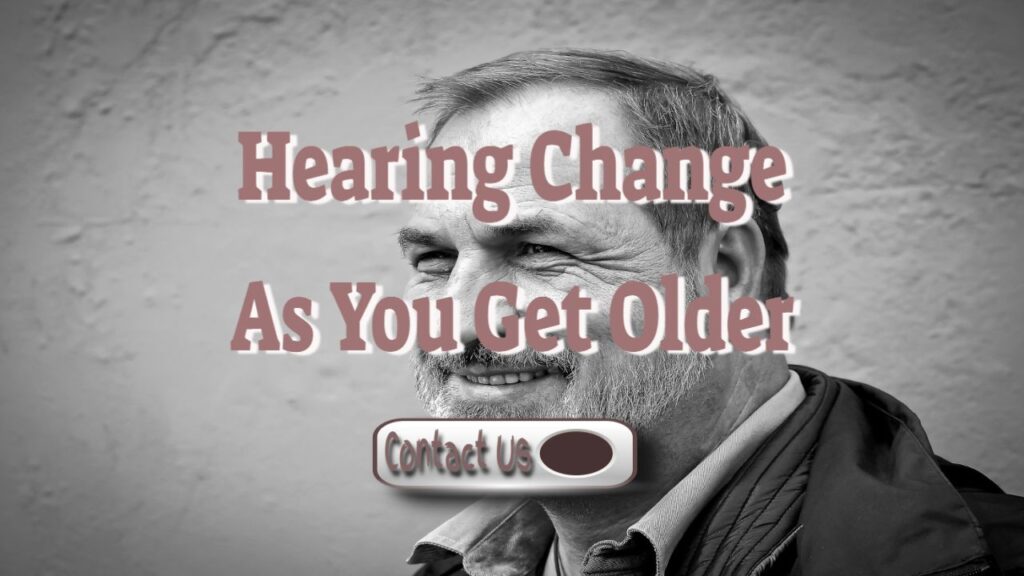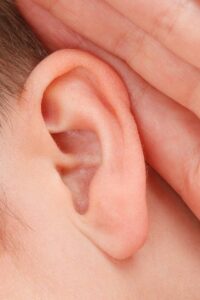How Does Your Hearing Change As You Get Older
Is that anything that will happen to me?
The short answer is most likely yes, at least to some extent. Most of us will lose our hearing as we become older. Hearing loss affects almost one-third of persons aged 65 to 74 in the United States. Hearing loss affects nearly half of individuals over the age of 75. There are, however, things you may do to keep your hearing as long as possible.
What are the reasons?
Both ears are frequently affected at the same time by hearing loss as a result of ageing. Changes in the ear itself that occur throughout time are frequently the cause. The inner ear is where these changes are most frequently found, although they can also be found in other body sections. Changes in the nerves that connect the ear to the brain are sometimes involved.
It's not just because of age.
Several factors influence how much hearing declines with ageing. Following are some examples:
Medical diseases include chronic ear infections, high blood pressure, and diabetes.
Medications you've used, such as aspirin, chemotherapy, and some antibiotics
Loud noises should be avoided, such as music, lawnmowers, fireworks, gunshots, loud motors, and aeroplanes.
Whether or not your family has a history of hearing loss
Look out for these indicators.
If your hearing is affected, you may experience the following symptoms:
Difficulty comprehending words or following a conversation, especially in noisy places like restaurants.
Hearing problems with consonants such as “s,” “t,” “k,” “p,” and “f.”
High-pitched sounds, such as doorbells or telephones, might cause hearing problems.
Is there a chance I have a hearing problem?
Examine these possibilities:
Do you ever feel threatened because you can't hear?
Do you get irritated when you can't hear your friends or family members when you're speaking to them?
Do you have to turn up the TV or radio to hear what others are saying?
Do you believe your hearing limits or hinders your abilities in any way?
Where should I begin?
If your hearing is becoming an issue for you, you should consult a doctor. Contact your primary care physician first, who may refer you to a specialist.
Experts who can assist you
An otolaryngologist will examine your ears to see anything else causing your hearing loss except age. Your hearing loss will be evaluated by an audiologist, who will then let you know how severe it is. A hearing healthcare professional can also evaluate your hearing and, if necessary, fit you with a hearing aid.
Treatments
If your hearing loss is significant, your doctor may recommend wearing a hearing aid. Hearing aids are tiny electrical devices that are worn in the ear. They boost the volume of the sound. Some are so little that you can't see them. Experiment with various hearing aids to find one that is both comfortable and convenient for you.
What else are you capable of?
To improve your hearing, inquire about portable receivers that can be worn in public places such as movie theatres, airports, and houses of worship. During talks, pay close attention to the individual you're speaking with's mouth, lips, and gestures. This can assist you in comprehending more of what the individual with whom you are conversing is saying.
Seek assistance.
Hearing loss isn't anything you should be ashamed of telling your family, friends, and coworkers about. Some simple things you and people around you can take to improve your hearing include:
Request that the individual you're speaking with speak louder and more clearly without shouting.
When the other person speaks, make sure you can see their face.
Keep background noise to a minimum at home.
When you're out and about, look for quieter areas.
Keep your hearing safe.
There is no apparent strategy to prevent or slow the progression of age-related hearing loss. You can, however, take care to avoid exacerbating the situation. Avoid making loud noises at work and in your spare time. If you can't avoid loud noises, wear earplugs or earmuffs to protect your ears and hearing.
Age-related hearing loss refers to the hearing loss that most of us suffer as we get older (presbycusis). It is one of the most common diseases affecting the elderly.
Hearing loss affects one in every three adults in the United States between the ages of 65 and 74, and more than half of those over 75 have difficulties hearing.
Hearing loss can impair comprehension. You may listen to phone calls, doorbells, and smoke alarms, as well as follow medical advice and respond to warnings.
Hearing loss might make people afraid to communicate with friends and family, leading to feelings of isolation.
Hearing loss caused by ageing affects both ears typically equally. Because hearing loss occurs gradually, you may be unaware that you have lost some hearing.
A range of factors can contribute to age-related hearing loss. The most common cause is age-related changes in the inner ear. Changes in the middle ear or complex anomalies in the neurological pathways that connect the ear to the brain can also cause it.
Certain disorders and drugs may also be involved.
Hearing is based on systems that convert airborne sound waves into electrical impulses. This information is subsequently transmitted to the brain via the auditory nerve in a convoluted series of processes.
Sound waves enter the pinna and travel to the eardrum via a narrow canal called the ear canal.
Incoming sound waves cause three tiny bones in the middle ear to oscillate. The scientific names for these three bones are malleus, incus, and stapes.
The middle ear bones transform airborne sound waves into fluid vibrations in the inner ear's cochlea, shaped like a snail filled with fluid.
The cochlea is divided into upper and lower sections by an elastic partition that extends from the beginning to the finish. This barrier is known as the basilar membrane because it serves as the base or first floor on which the principal auditory structures are located.
The waveforms travel down the basilar membrane when the fluid in the cochlea vibrates owing to vibration. This wave is followed by a layer of sensory hair cells immediately above the basilar membrane.
Stereocilia are microscopic hair-like projections that rub up against and extend with an underlying structure as they move up and down the hair cells.
When the tips of the stereocilia are bent, they form pore-like channels. Substances enter the cells in this manner and generate an electrical signal.
This electrical information is turned into a sound that we recognise and understand by the auditory nerve in the brain.
Hearing loss has long-term repercussions that extend beyond the ability to hear. It's more difficult to enjoy activities like movies, lectures, concerts, church services, or other social events when you can't hear properly. This may imply that you will be unable to spend time with those essential to you. To avoid emotions of loneliness and sadness, make good hearing a top priority.
Brought To You By- Ear Wax Removal Surbiton
The post How Does Your Hearing Change As You Get Older appeared first on https://gqcentral.co.uk







Comments are closed